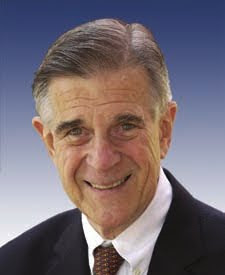
Another Signing Hypocrisy
Back in June 2009, I addressed the Signing Hypocrisy based on the 'sunshine policy'.
Here I address the 'signing statement' policy.
Before becoming President, then President-Elect Obama had a pretty strict sounding policy.
Here is a Q&A from the Change.Gov website
Q: "What will you do as President to restore the Constitutional protections that have been subverted by the Bush Administration and how will you ensure that our system of checks and balances is renewed?" Kari, Seattle
A: President-elect Obama is deeply committed to restoring the rule of law and respecting constitutional checks and balances.That is why he has pledged to review Bush Administration executive orders. President-elect Obama will also end the abuse of signing statements, and put an end to the politicization that has taken place within the Department of Justice and return that agency to its historic and apolitical mission of fair and impartial administration of justice.
Notwithstanding the Q&A above, President Obama has issued quite a number of signing statements.
Among the people who've noticed this are some self described progressives in Congress and they've issued a warning against this practice.
Unless Obama maintains that there is some obvious difference between bad signing statements and good signing statements (other than when Bush did it the practice was bad but when Obama does it the practice is good), this seems to be a pretty clear case of hypocrisy (since Obama hasn't issued a 'I've changed my mind' type statement).
I consider this a minor impact hypocrisy. Very few people (mostly far left democrats who aren't going to change into moderates or conservatives any time soon) really cared about then President's signing statements and very few people (the same far lefters and some Republicans who want to embarrass Obama on this matter) will care that Obama is doing signing statements.
Personally, I don't see why the President should not issue such statements. Congress issues Committee Reports (that can not be vetoed) when passing legislation and Presidential signing statements simply balance power in this case.
The signing statements of the President give a basis for the Cabinet departments to construe important matters. In one case, the Office of Legal Counsel used a signing statement to conclude that President Obama could summarily disregard statute (and FWIW, I agreed both with the Obama signing statement and the OLC statement).
Pre inaugural statement on signing statements is here.
Article about progressive opposition to Obama signing statement practice is here.
At least one newspaper has also denounced the statement and the editorial is here.
DOJ-OLC statement on constitutionality of paragraph 7054 of 2009 Foreign Appropriation Act is here.



